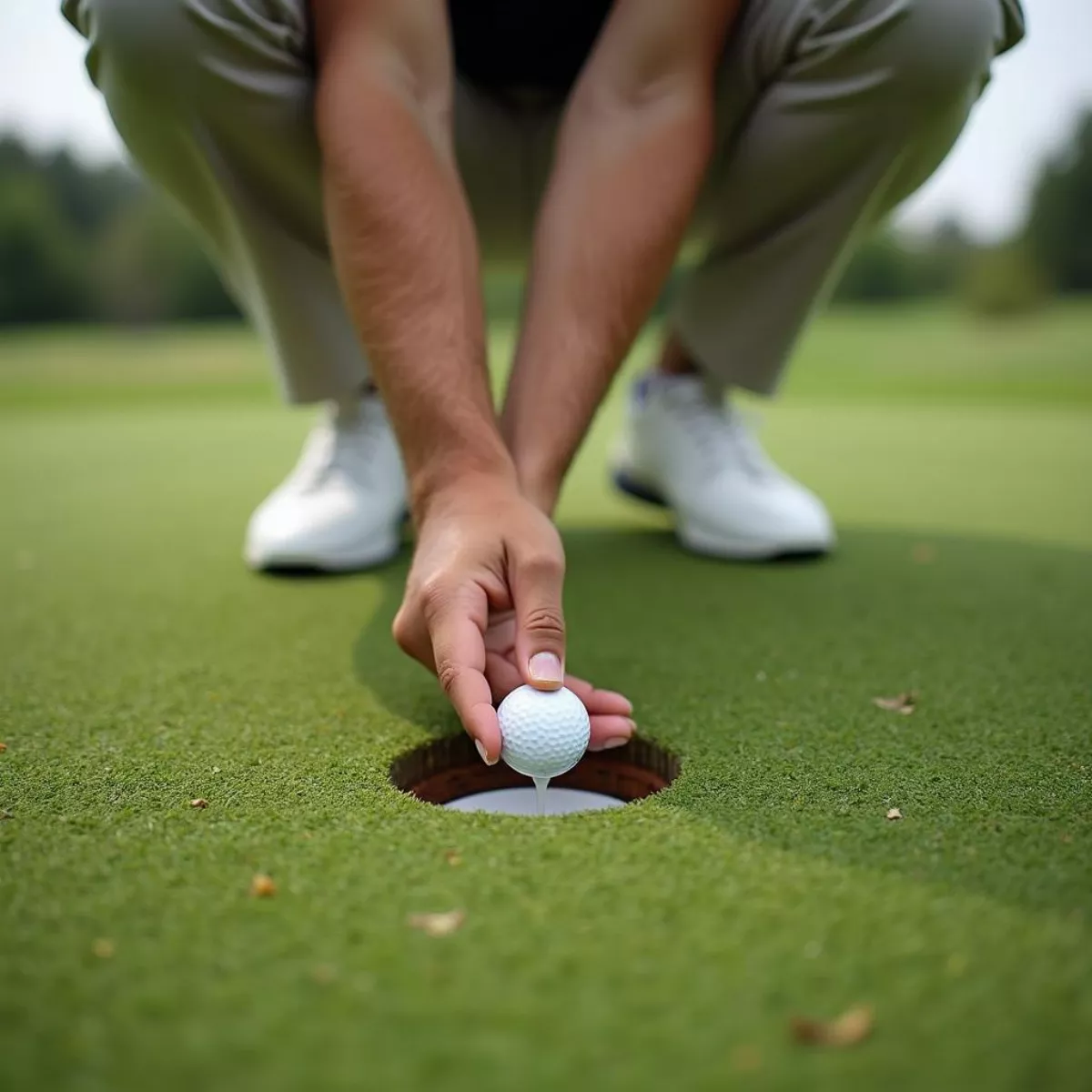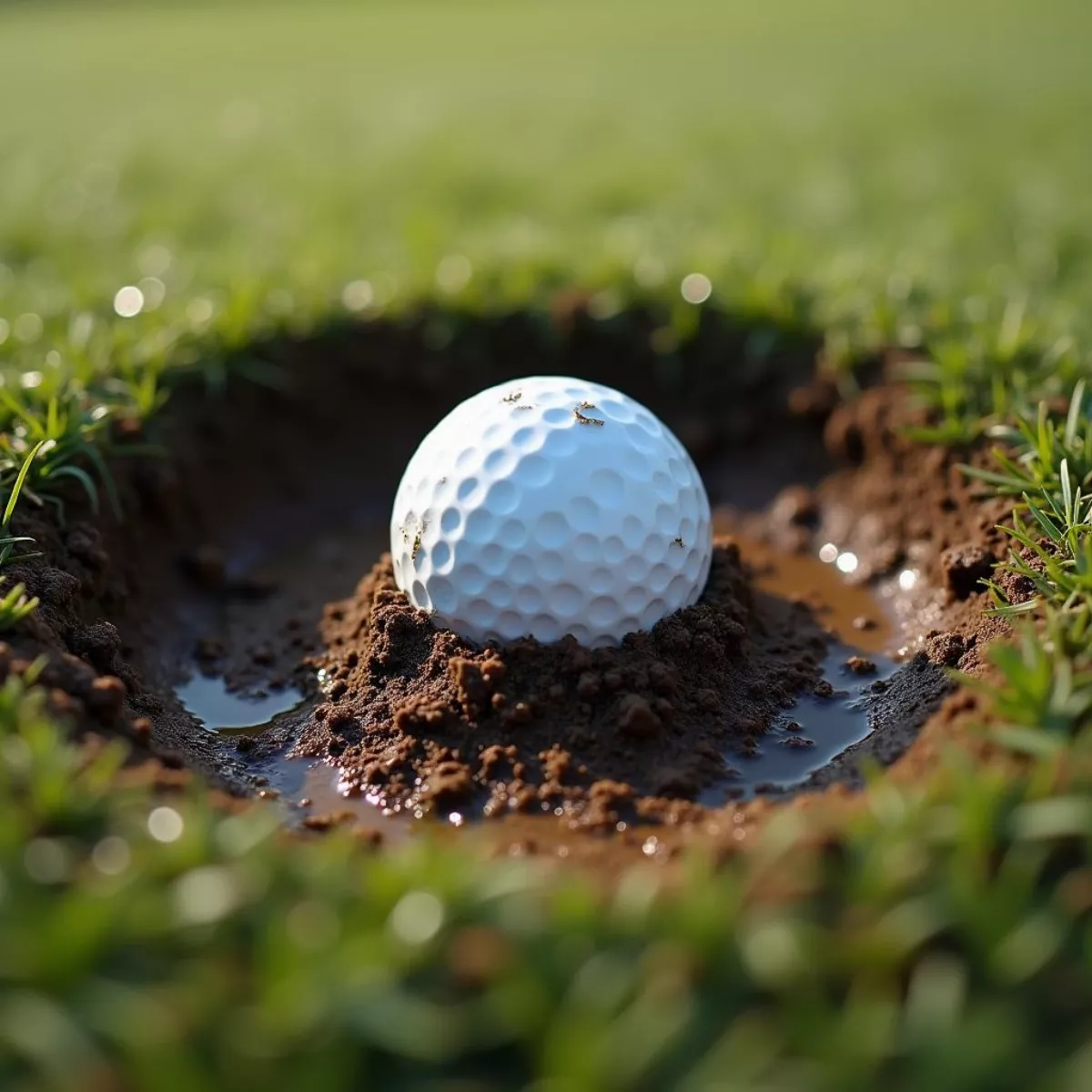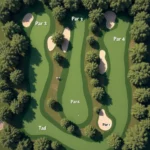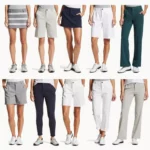Golf is a game steeped in tradition, yet it constantly evolves to accommodate the needs of players. One such evolution is the concept of preferred lies. Whether you’re a seasoned golfer or just starting, understanding preferred lies can enhance your game and the enjoyment of playing.
In this article, we’ll dive deep into what preferred lies are, when they apply, and their impact on your golf game. So, grab your clubs, and let’s tee off into this enlightening discussion!
What Are Preferred Lies?
In simple terms, preferred lies, often referred to as “lift, clean, and place,” allow players to improve their ball position under certain conditions. During wet weather or on poorly maintained courses, golfers might find their balls lying in mud, grass, or other unfavorable conditions. To ensure fair play and better conditions, the Rules of Golf permit preferred lies.
The Basics:
- Definition: Preferred lies allow players to lift their ball, clean it, and place it back in a more favorable spot within a defined area.
- Purpose: This ensures players can play under equitable conditions, minimizing damage to the course.
- Local Rule: Preferred lies are generally used as a local rule, meaning they’re implemented at specific courses and tournaments.
 Golf Course in Wet Conditions
Golf Course in Wet Conditions
When Do Preferred Lies Apply?
Preferred lies are usually implemented during certain scenarios:
Common Circumstances for Use:
- Wet Conditions: When the ground is saturated, and the course becomes muddy.
- Winter Rules: Often used in colder months to protect the course and improve playability.
- Poor Fairway Quality: If the fairway is damaged or has excessive divots and bare spots.
It’s always a good idea to check with your course’s local rules before playing. This ensures you’re well-informed about any preferred lie practices in place.
How to Implement Preferred Lies
When preferred lies are in play, follow these steps after hitting your ball:
- Lift the Ball: Gently pick up your ball from the course.
- Clean the Ball: Wipe it down to remove any mud or debris.
- Place the Ball:
- Place it within a designated area, often defined as a club length from its original spot.
- Ensure you’re not improving your lie significantly; placing it in a better position for a more manageable shot is acceptable.
Important Considerations:
- Clubs Used: Preferred lies typically apply to all clubs, but it’s still wise to verify this on a course-by-course basis.
- Inadvertent Moves: If you accidentally move your ball while adjusting it, don’t panic! Just place it back in its original position without penalty.
 Golfer Placing Golf Ball
Golfer Placing Golf Ball
Benefits of Using Preferred Lies
Why Preferred Lies Matter:
- Fair Play: They help create equitable playing conditions, especially in adverse weather.
- Course Protection: Encouraging these practices protects the course from damage during wet conditions.
- Player Enjoyment: They help mitigate frustrations that players might encounter when facing unfriendly conditions.
Benefits for Beginners and Amateurs:
- Skill Development: Being able to place your ball favorably lets beginners practice their shots without overly punishing outcomes.
- Confidence Boost: Having better positioning can enhance the enjoyment and confidence of new golfers as they develop their skills.
Alternative Rules to Consider
While preferred lies are popular, you may come across other rules, such as the “no preferred lies” rule. Always check specific course regulations. Here are key alternatives:
| Rule | Description |
|---|---|
| No Preferred Lies | Players must play the ball as it lies, irrespective of conditions. |
| Regular Play | In fair conditions, preferred lies are not enforced, and players must play the course naturally. |
 Golf Ball in Mud
Golf Ball in Mud
Key Takeaways
- Preferred Lies are important local rules that allow players to lift, clean, and place their golf balls under unfavorable conditions.
- Used mainly during wet weather or poor course conditions, they aim to promote fair play and protect the course.
- Always verify the local regulations before playing to ensure you’re adhering to the rules in play.
- Understanding and utilizing preferred lies can enhance your overall golfing experience and improve your game.
FAQs About Preferred Lies
1. Can I always use preferred lies?
- No, preferred lies are typically a local rule at certain courses or during particular events. Always check with the course’s rules.
2. What happens if I accidentally move my ball while cleaning it?
- If you inadvertently move your ball, you can simply replace it without penalty.
3. Are preferred lies allowed in tournament play?
- Preferred lies may be allowed in some tournaments, but only if specified in the local rules.
4. Can I improve my lie by moving my ball further away from hazards?
- No, you cannot improve your lie beyond a club length from where it originally lay.
5. Are preferred lies the same as winter rules?
- Preferred lies can be a part of winter rules, but winter rules can also encompass other conditions, such as free drops from snow or ice.
6. Do preferred lies apply to all areas of the course?
- Generally, they apply only in specific areas marked by local rules, but always confirm with the course management.
7. How do preferred lies enhance a golfer’s experience?
- They promote fair play and make the game more enjoyable, especially for beginners facing challenging conditions.
8. Do I need to inform my playing partners when preferred lies are in effect?
- Yes, it’s courteous to keep your playing partners informed about any local rules before you start.
9. Is there a limit on how many times I can use preferred lies during a round?
- There is no limit; you can utilize preferred lies multiple times as long as the conditions warrant it.
10. Can I use preferred lies if my ball is in a hazard?
- No, preferred lies typically do not apply in hazards. You must play the ball as it lies in those areas.
Now that you’ve got a comprehensive understanding of preferred lies in golf, you’re better equipped to tackle unfair conditions on the course. Remember to always respect your local rules and maintain the spirit of the game. Happy golfing!
Feel free to reference guides on the Rules of Golf, or consult with your local golf course for further information. Enjoy your next round with confidence!

